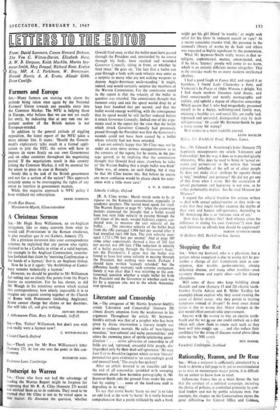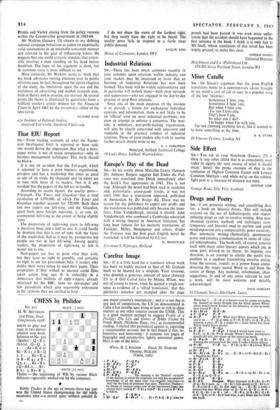Rationality, Reason, and Dr Rose
Sta.—When a reviewer is sufficiently stimulated by a book to devote a full page to it, yet so overstimulated as to miss or misinterpret major points, it is difficult for an author to know how to react.
Influencing Voters has as a Main theme the fact that the conduct of a political campaign, including the choice of policies, is controlled primarily by poli- tical leaders and not by public relations men. For example, the chapter on the Conservatives shows the great difficulties for Central Office and Colman, Prentis and Varley arising from the ray vacuum within the Conservative government m 1963-64.
Mr Watkins (January 13) objects to my defining rational campaign behaviour as action on empirically valid assumptions in an internally consistent manner and relevant to the goal of influencing voters. He suggests that one could as easily stipulate that ration- ality involves a man standing on his head before breakfast. The logic of his argument is clear, but its common sense is more difficult to see.
Most curiously, Mr Watkins seems to think that my book advocates turning elections over to public relations men. In fact, throughout the eleven chapters of the study, the limitations upon the use and the usefulness of advertising and market research men, both in theory and in practice, are stressed. At several points the theme is illustrated by quotations from a brilliant insider's article written for the Financial Times in April 1965 by the present-day editor of the SPECTATOR.
RICHARD ROSE c I o Institute of Political Studies, Stanford University, Stanford, California































 Previous page
Previous page